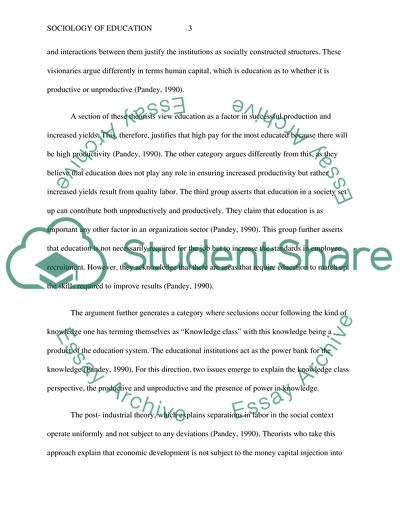Cite this document
(“Sociology of education - Critically assess the interactionist Essay”, n.d.)
Sociology of education - Critically assess the interactionist Essay. Retrieved from https://studentshare.org/sociology/1685221-sociology-of-education-critically-assess-the-interactionist-perspective-of-how-labelling-impacts-on-the-educational-journey-of-students
Sociology of education - Critically assess the interactionist Essay. Retrieved from https://studentshare.org/sociology/1685221-sociology-of-education-critically-assess-the-interactionist-perspective-of-how-labelling-impacts-on-the-educational-journey-of-students
(Sociology of Education - Critically Assess the Interactionist Essay)
Sociology of Education - Critically Assess the Interactionist Essay. https://studentshare.org/sociology/1685221-sociology-of-education-critically-assess-the-interactionist-perspective-of-how-labelling-impacts-on-the-educational-journey-of-students.
Sociology of Education - Critically Assess the Interactionist Essay. https://studentshare.org/sociology/1685221-sociology-of-education-critically-assess-the-interactionist-perspective-of-how-labelling-impacts-on-the-educational-journey-of-students.
“Sociology of Education - Critically Assess the Interactionist Essay”, n.d. https://studentshare.org/sociology/1685221-sociology-of-education-critically-assess-the-interactionist-perspective-of-how-labelling-impacts-on-the-educational-journey-of-students.


